A Lennon Legacy
 I’d like to think that we all have heroes, that everyone out there, no matter how successful they are, takes the time to have someone to look up to and admire. John Lennon was always that hero to me. He lived by his own rules and made a mark that only grows stronger over time. A few years ago, I was lucky enough to meet his oldest son, Julian, and to share a deeply moving conversation about his dad and the work that he did – and to discuss the work that Julian has created through his charity, The White Feather Foundation.
I’d like to think that we all have heroes, that everyone out there, no matter how successful they are, takes the time to have someone to look up to and admire. John Lennon was always that hero to me. He lived by his own rules and made a mark that only grows stronger over time. A few years ago, I was lucky enough to meet his oldest son, Julian, and to share a deeply moving conversation about his dad and the work that he did – and to discuss the work that Julian has created through his charity, The White Feather Foundation.
The White Feather Foundation was started over 20 years ago and embraces environmental and humanitarian issues in conjunction with partners from all around the world, raising funds for a more sustainable, better world for every living being. White Feather has done everything from supporting artists to marching to end bullying to building an orphanage in Sri Lanka. One project at a time, Julian’s Foundation builds better lives and stronger communities. In 2008, he was honored by the Better World Environmental Award by Prince Albert of Monaco.
It’s not easy for artists today – the entire industry has changed and then changed gain. While being fathered by a giant among men, Julian has never been one to stand on the shoulders of his dad, John. He has carved his own careers as both a musician and a photographer. He has brilliantly built the one thing ALL of us should define and design every day – an inspiring legacy that changes and betters the world of others.
Julian’s latest album, Everything Changes, will be released worldwide early 2013. In the meantime, we will all wait impatiently, and hopefully support his great work with White Feather. To send a donation, go to https://WhiteFeatherFoundation.com


 In my newest book, The Magic and Moxie of Apple: An Insider’s View, I compared Steve Jobs and John Lennon; two iconic legends of a generation that are no longer with us today. Coincidentally, today is John’s birthday and last week marked the 1 year anniversary of Steve’s death. For that reason, I feel that it is only right for me to pay homage to two of the most inspirational men in my life.
In my newest book, The Magic and Moxie of Apple: An Insider’s View, I compared Steve Jobs and John Lennon; two iconic legends of a generation that are no longer with us today. Coincidentally, today is John’s birthday and last week marked the 1 year anniversary of Steve’s death. For that reason, I feel that it is only right for me to pay homage to two of the most inspirational men in my life. As someone who has built their entire career around the convergence of technology and music, nothing pains me more than to see artists ripped off by advancements in technology. Whether we’re talking about the Napster days of the early 2000s or Grooveshark today, artists continue to be undercompensated (if compensated at all) for their work. While we’ve certainly taken some great strides towards fairly discovering and obtaining music, there is still a lot of work to be done. That’s why I was delighted to learn about Rdio, an ad-free music subscription service.
As someone who has built their entire career around the convergence of technology and music, nothing pains me more than to see artists ripped off by advancements in technology. Whether we’re talking about the Napster days of the early 2000s or Grooveshark today, artists continue to be undercompensated (if compensated at all) for their work. While we’ve certainly taken some great strides towards fairly discovering and obtaining music, there is still a lot of work to be done. That’s why I was delighted to learn about Rdio, an ad-free music subscription service.

